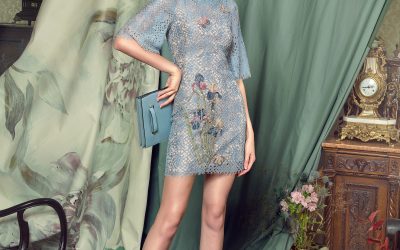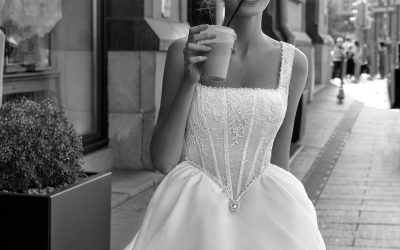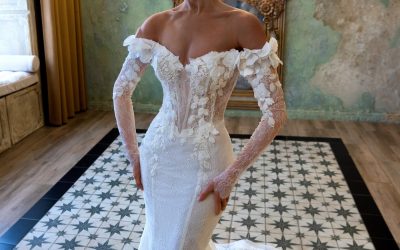Table of Contents
Unveiling the True Cost of Wedding Dresses: Budgeting for Your Dream Gown
Your wedding day is approaching, and you’ve found the perfect dress that makes you feel like a princess. But have you considered the hidden costs of that dreamy bridal gown? Wedding dresses can come with unforeseen expenses that often catch brides by surprise. In this blog post, we’ll explore the hidden costs of wedding dresses, helping you prepare and budget accordingly.
From wedding dress alterations to accessories, various elements can significantly impact your wedding dress’s overall cost. Alterations alone can add up quickly, with adjustments to the length, fit, and customizations you desire. Then there are accessories like veils, belts, shoes, and jewelry that can enhance your bridal look but also put a dent in your wallet.
Furthermore, don’t overlook the expenses associated with cleaning and preservation after your special day. These services are often necessary to keep your dress in pristine condition and can add to the total cost.
By understanding the hidden costs of wedding dresses and considering them in your budgeting, you can ensure that your dream dress doesn’t become a financial nightmare. So, let’s dive into the details and empower you to plan your dream wedding effectively.
The price of the dress: budget vs. designer options
When it comes to wedding dresses, the price can vary significantly depending on the brand, designer, fabric, and overall craftsmanship. Before you start shopping, it’s important to establish a budget for your dress and stick to it. It will help you narrow down your options and avoid falling in love with a wedding gown that is beyond your means.
If you’re on a tight budget, don’t despair. Plenty of affordable wedding dress options are available, including off-the-rack dresses, sample sales, and even pre-owned dresses. These can be excellent alternatives for brides who want to save money without compromising on style.
On the other hand, if you have your heart set on a designer wedding dress, be prepared to pay a premium. Designer wedding dresses often come with a higher price tag due to the quality of materials used, intricate detailing, and the prestige associated with the brand. While these dresses can be stunning, they may not be feasible for every budget.
Consider your priorities when choosing between a budget dress and a designer option. If you value the brand and craftsmanship, it might be worth investing in a designer dress. However, if you’re more focused on staying within your budget, plenty of beautiful wedding dresses are available at a more affordable price point.

Alterations and fittings: additional expenses to consider
Once you’ve found your wedding dress, it will rarely fit perfectly. Alterations are almost always necessary to ensure the dress fits you like a glove. These alterations can include adjustments to the length, fit, and customizations you desire.
It’s essential to budget for alterations when planning for your wedding dress. The cost of alterations can vary depending on the complexity of the adjustments needed and the skill of the seamstress.
It’s a good idea to research local seamstresses and get quotes before making a final decision on your bridal dress. It will give you a better idea of how much you can expect to spend on alterations.
Remember that alterations can take time, so it’s crucial to factor in enough time before your wedding for fittings and any necessary adjustments. Starting the alterations process well in advance will ensure that your dress fits perfectly on your big day.
Customization and personalization: adding unique touches
Many brides dream of customizing their wedding dress to make it truly unique and reflective of their personal style. Customizations can include changes to the neckline, sleeves, embellishments, or even adding a personal monogram.
While these customizations can make your bridal gown one-of-a-kind, they often come with an additional cost. Depending on the complexity of the changes and the skill of the seamstress, customization fees can vary.
It’s important to discuss your vision with a professional and get a clear understanding of the cost before proceeding with any alterations.
When considering customizations, it’s also crucial to keep in mind the impact they may have on the overall aesthetic and resale value of your dress. While personal touches can make your wedding dress special, they may limit its appeal to future buyers if you plan to sell it after your wedding.
Accessories: shoes, veil, jewelry, and more
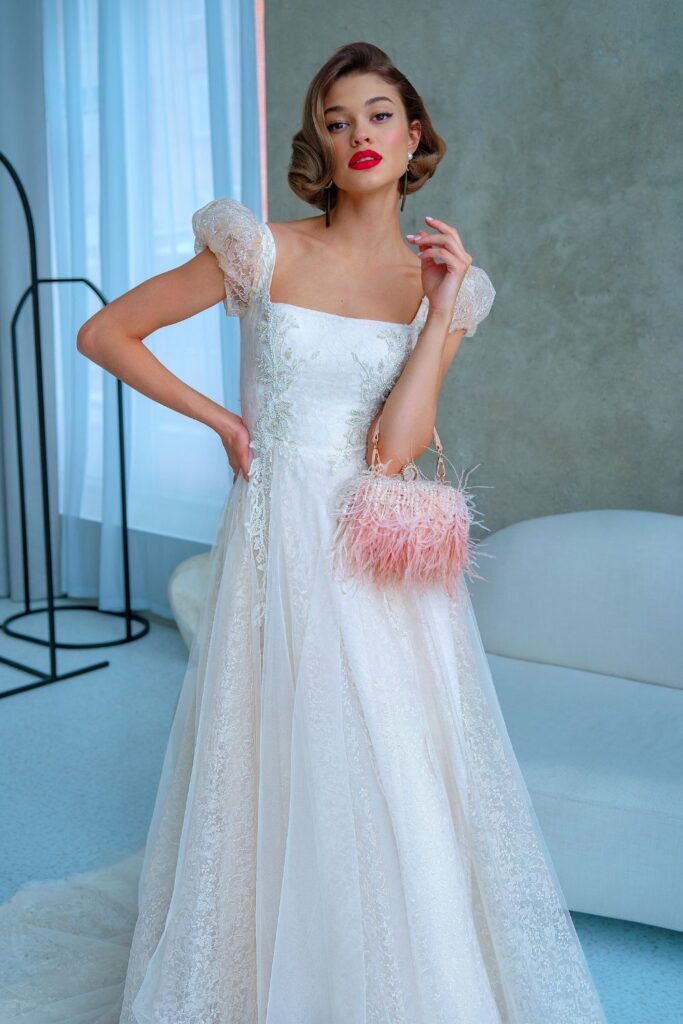
Accessories are essential to completing your bridal look, but they can also add up quickly in terms of cost. From shoes to veils, belts to jewelry, there are numerous accessories to consider when planning your wedding attire.
When it comes to shoes, comfort should be a priority. You’ll be spending a significant portion of your day on your feet, so investing in a comfortable pair of shoes is crucial. However, that doesn’t mean you have to sacrifice style. Many beautiful bridal shoes that are both comfortable and fashionable are available.
Veils come in various lengths and styles, each with its price point. Depending on the type of veil you choose, prices can range from affordable to quite expensive. If you want to save money, consider borrowing a veil from a friend or family member or exploring more affordable options.
Jewelry is another accessory that can significantly impact the overall cost of your bridal look. While diamonds and precious gemstones are undoubtedly beautiful, they can be expensive. Consider exploring more affordable options, such as costume jewelry or renting pieces for the day.
Lastly, remember other accessories like belts, hairpieces, and handbags. These small details can add up, so it’s important to consider them when budgeting for your wedding dress.
Undergarments: the importance of proper undergarments and their cost
Proper undergarments are essential for achieving the perfect fit and silhouette of your wedding dress. Ill-fitting or inadequate undergarments can ruin the overall look of your dress and make you feel uncomfortable on your special day.
When selecting undergarments for your wedding dress, consider the style and cut of your gown.
Strapless dresses may require a supportive strapless bra or bustier, while backless dresses may call for adhesive cups or specialized undergarments.
Investing in high-quality undergarments that fit you well and provide the necessary support and shaping is essential. While these undergarments may come with a higher price tag, they are worth the investment to ensure you look and feel your best on your wedding day.
Cleaning and preservation: post-wedding expenses
After your wedding day, your dress will likely need to be cleaned and preserved to keep it in pristine condition. It is especially important if you plan to pass it down as a family heirloom or sell it in the future.
Professional cleaning and preservation services can be pretty costly, but they are crucial for maintaining the integrity of your wedding dress.
These services typically involve removing stains, repairing any damage, and packaging the dress in acid-free materials to prevent yellowing and deterioration over time.
While it’s tempting to try cleaning your wedding dress yourself or skip the preservation process altogether, leaving it to the professionals is highly recommended. They have the expertise and resources to ensure your dress is properly cleaned and preserved, extending its lifespan for years.
Storage and insurance: protecting your investment
Once your wedding dress has been cleaned and preserved, you’ll need to consider how to store it properly. Storing your gown in a safe and controlled environment is essential to prevent damage from humidity, light exposure, and pests.
Investing in a high-quality garment bag or box specifically designed for wedding dress storage is a wise choice.
These storage solutions are made from acid-free materials and provide protection against dust, moisture, and light.
In addition to proper storage, consider insuring your wedding dress. Wedding dress insurance can provide coverage in case of loss, damage, or theft. While it may seem like an unnecessary expense, the peace of mind it offers is priceless, especially considering the sentimental and financial value of your dress.
Renting vs. buying: weighing the pros and cons
Renting a wedding dress has become an increasingly popular option for brides looking to save money or reduce their environmental impact. Renting allows you to wear a designer wedding dress for a fraction of the cost, and you won’t have to worry about cleaning, preserving, or storing the dress afterward.
However, renting wedding dresses may limit your options in terms of style and fit. You may be unable to find the dress you envisioned, and alterations are generally not allowed on rented wedding dresses. Also, you won’t have the opportunity to pass your dress down as a family heirloom or keep it as a memento of your special day.
On the other hand, buying a wedding dress gives you the freedom to choose exactly what you want and make any necessary alterations to achieve the perfect fit. You also have the option to keep or sell the dress after your wedding. However, buying a dress can be a significant investment, and you’ll need to consider the additional costs discussed throughout this blog post.
Ultimately, the decision to rent or buy a wedding dress comes down to your personal preferences, budget, and priorities.
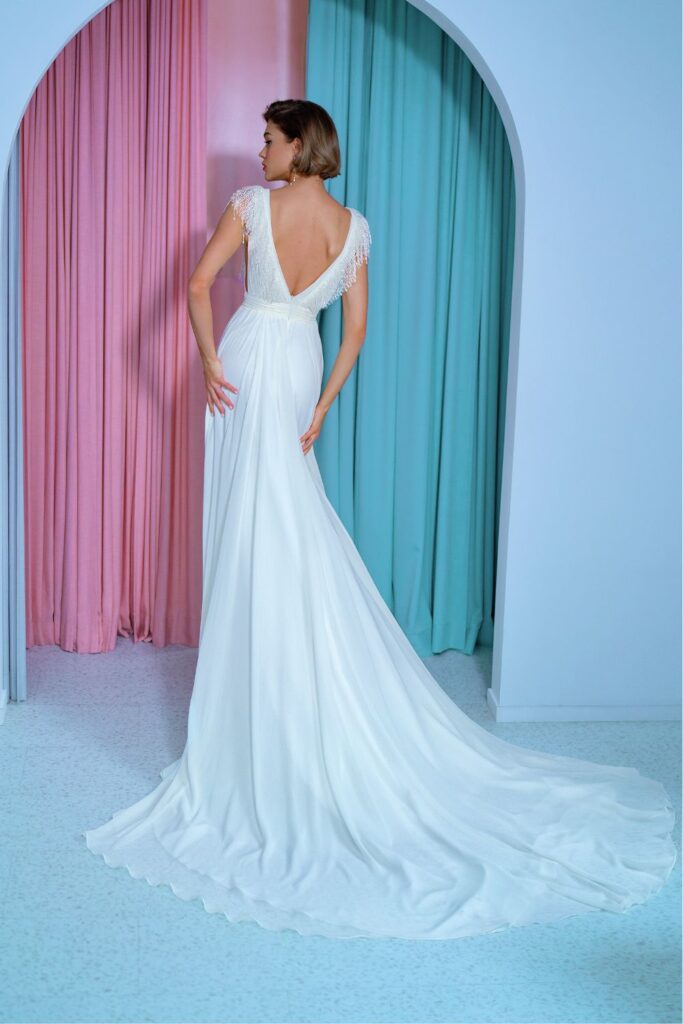
Understanding the actual cost of wedding dresses
Your wedding dress is undoubtedly one of your big day’s most important and memorable aspects. However, it’s essential to consider the hidden costs associated with wedding dresses to avoid any surprises or financial strain.
From alterations to accessories, undergarments to cleaning and preservation, various elements can significantly impact the overall cost of your wedding dress. By understanding these hidden costs and considering them in your budgeting, you can ensure that your dream dress doesn’t turn into a financial nightmare.
So, as you embark on your wedding dress shopping journey, keep in mind the price of the dress, alterations and fittings, accessories, undergarments, cleaning and preservation, storage and insurance, customization and personalization, and the pros and cons of renting vs. buying. Armed with this knowledge, you’ll be better prepared to make informed decisions and plan your dream wedding effectively.
Happy Wedding Dress Shopping,
Papilio Team


